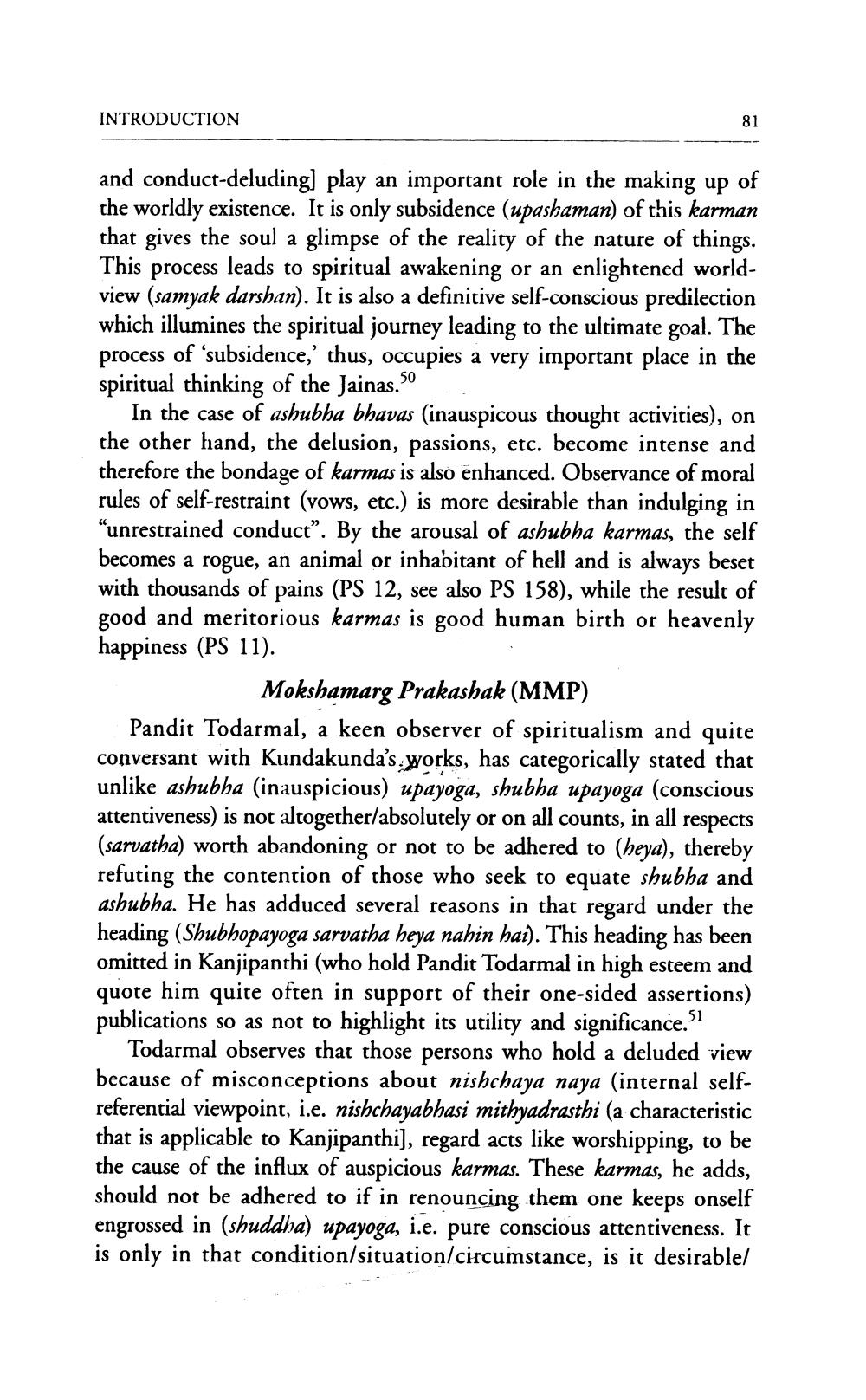________________
INTRODUCTION
and conduct-deluding) play an important role in the making up of the worldly existence. It is only subsidence (upashaman) of this karman that gives the soul a glimpse of the reality of the nature of things. This process leads to spiritual awakening or an enlightened worldview (samyak darshan). It is also a definitive self-conscious predilection which illumines the spiritual journey leading to the ultimate goal. The process of 'subsidence,' thus, occupies a very important place in the spiritual thinking of the Jainas. So
In the case of ashubha bhavas (inauspicous thought activities), on the other hand, the delusion, passions, etc. become intense and therefore the bondage of karmas is also enhanced. Observance of moral rules of self-restraint (vows, etc.) is more desirable than indulging in “unrestrained conduct”. By the arousal of ashubha karmas, the self becomes a rogue, an animal or inhabitant of hell and is always beset with thousands of pains (PS 12, see also PS 158), while the result of good and meritorious karmas is good human birth or heavenly happiness (PS 11).
Mokshamarg Prakashak (MMP) Pandit Todarmal, a keen observer of spiritualism and quite conversant with Kundakunda’s works, has categorically stated that unlike ashubha (inauspicious) upayoga, shubha upayoga (conscious attentiveness) is not altogether/absolutely or on all counts, in all respects (sarvatha) worth abandoning or not to be adhered to (heya), thereby refuting the contention of those who seek to equate shubha and ashubha. He has adduced several reasons in that regard under the heading (Shubhopayoga sarvatha heya nahin hai). This heading has been omitted in Kanjipanthi (who hold Pandit Todarmal in high esteem and quote him quite often in support of their one-sided assertions) publications so as not to highlight its utility and significance.
Todarmal observes that those persons who hold a deluded view because of misconceptions about nishchaya naya (internal selfreferential viewpoint, i.e. nishchayabhasi mithyadrasthi (a characteristic that is applicable to Kanjipanthi), regard acts like worshipping, to be the cause of the influx of auspicious karmas. These karmas, he adds, should not be adhered to if in renouncing them one keeps onself engrossed in (shuddha) upayoga, i.e. pure conscious attentiveness. It is only in that condition/situation/circumstance, is it desirable/




